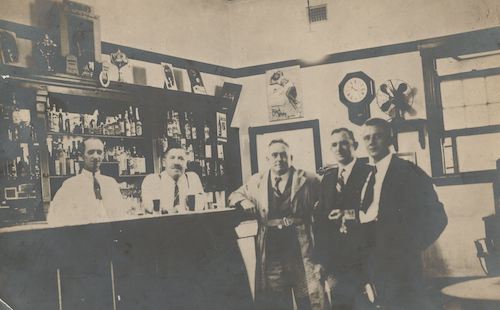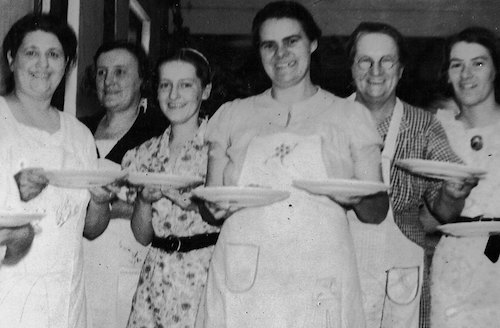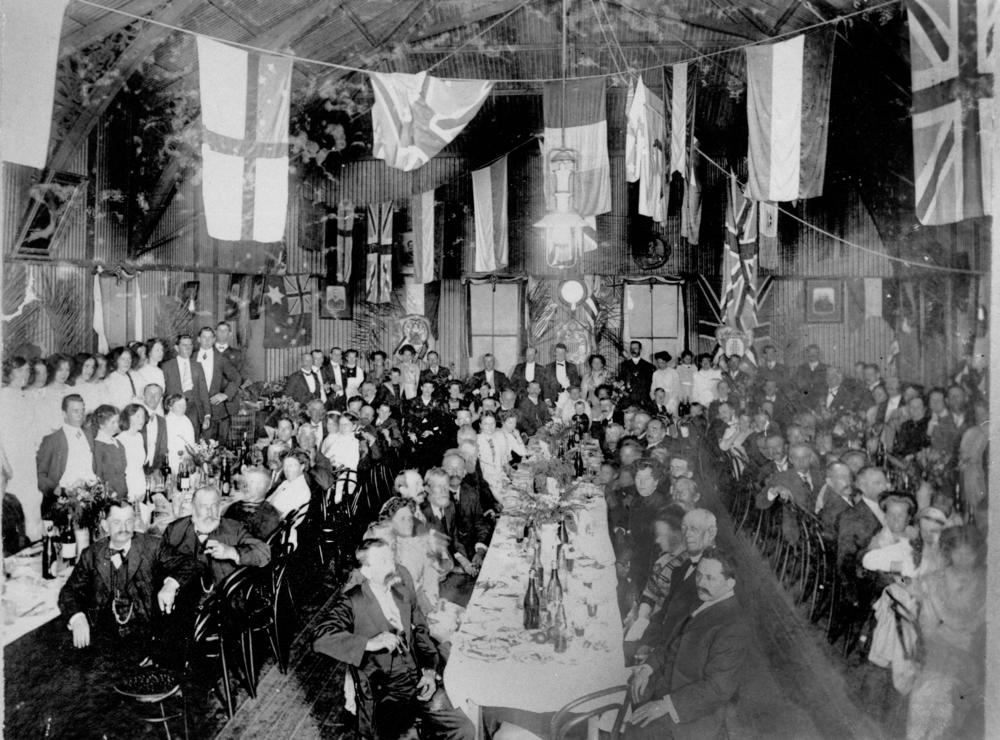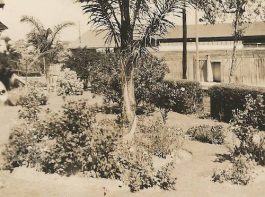The following is an excerpt from Anne Keenan’s family history book Music and War about her grandparents Julius and Sophie Klares who came from Germany.
CHAPTER 6 – THE GERMAN CLUB
The great depression changed everything and business people immediately sacked their gardeners and laundry women as a result of their own businesses being affected and money being scarce. Julius was able to get some government relief work for a while and then in 1933, when the Brisbane German Club, The Brisbane Deutscher Turnverein, pulled down their old building and built a new one on their land in Vulture Street at Woolloongabba, ready to open in 1934, they needed someone to landscape the garden and Julius was given the job due to his gardening experience and the excellent references that he was given by his previous employers.
After planting and caring for the garden, Julius was given the job of bartender at the German Club and eventually became the manager and caretaker, moving into the building with his family in 1936. It was reported in the Brisbane newspaper of Friday the 20th of November, 1936 that Julius Klares had been elected as ‘verwalter’ (residential chief steward) as the previous Verwalter, Geo Friedrich, could not continue on due to ill health.

With the family settled in the ‘Club’ as the family always called it, Sophie quickly became very popular as the caterer, running the kitchen. Her years of cooking for the men in the band would have given her plenty of experience cooking for larger than average groups of people. I can imagine the huge pots of Sauerkraut and platters of pork knuckles, along with plenty of black bread and ‘Blutwurst’ (blood sausage) that she would have cooked.

There was always plenty of help from her two daughters, and also from her sister in law ‘Polly’. During this time, the family entertained the crews of German boats that docked in Brisbane whose first destination off their boats was always the German club. Apart from making them welcome at the club, the family often took crew members on the regular German Club picnics and sightseeing around south east Queensland.
In 1939, Julius, who had been a member of the Australian Labour Party since he became an Australian citizen, and had played in their band, was honoured by them, being made a Justice of the Peace. He felt very proud and grateful for this recognition as a patriotic Australian. I can only wonder if perhaps at any stage Sophie and Julius ever considered returning to Germany to see their family and friends, but with reports from the sailors who visited of the harsh living conditions and scarcity of food and employment options there, I am sure that they were very grateful that fate had settled them in Australia.
During their time living at the Club, the family made many friends and life was very good, but bad luck struck again in 1939 when England declared war on Germany once more. The night that war was declared, with an announcement on the radio, the president and German Club committee decided that the club would be closed for the duration of the war.
It was a sad day as Julius and Sophie lost contact with many of their friends, many of whom Sophie and Julius would never see again. Julius stayed on at the club as caretaker, but had to find an outside job as well, even though he was allowed to stay on the premises rent-free. It was an anxious time, as twice someone shot bullets through a window in the main building and for months the family lived in the large building alone. The family, having lived through one war here, knew what to expect, again being classified as the ‘enemy’, so they kept to themselves as much as they could.
Other Germans who were not so fortunate often came to Julius to swap goods for food. Later during the war the main dance hall, the kitchen attached to it and the bar were taken over by the Australian army who were camped at the “Gabba”, the Woolloongabba cricket ground across the road, and Sophie and Julius were left to live in the small living quarters of the club.
This was a very traumatic period for Sophie and Julius, as during WW2 their only son Erich, aged in his early 20s, was posted with the AIF to New Guinea and later to Bougainville to serve for the duration of the war, nursing in a medical unit, the 106th Australian Casualty Clearing Station. It was quite ironic that the family were not treated well by many people because they had come to Australia from Germany, yet their only son, born in Australia, was a member of the Australian armed forces and was mentioned in dispatches.
They also worried about their two daughters, both very pretty and in their 20’s, with many young soldiers living quite literally on their doorstep.
In 1943, the army asked for full occupation of the German Club, and Julius took the family back to Toowong and once more lived near their good friends Albert and Agnes Wabiszewski and their family. Julius had found a job as groundsman at the Brisbane Girls Grammar School in July of 1942 where Miss Kathleen Lilley was headmistress at the time. The fact that Julius could gain employment at that time, especially at such a well-respected school, tells of his good standing within the Brisbane community.
Julius worked at the Brisbane Girls Grammar School until he became ill in July of 1951, at which time Miss Lilley wrote him a good reference, but sadly, on the 2nd of December, 1952 he passed away from stomach cancer at the age of 67, six months before the German Club re-opened after nearly fourteen years of closure.
Sophie received a letter dated the 23rd of January, 1953 from the secretary of the German Club informing her that they were happy to welcome back the wives of deceased members with all of the privileges that they had previously enjoyed before the club closed for the duration of the war. This gave Sophie some comfort, as she was able to renew friendships with some of the old friends that she had made before the war, but again, many of them told of relatives and friends who had been interned and suffered greatly simply because they were German.
Social Gathering ca. 1913

The club was established in 1883 and still operates today having become a cultural icon of Brisbane, famous for its hospitality, good food and beer and, of course, the annual Oktoberfest.


